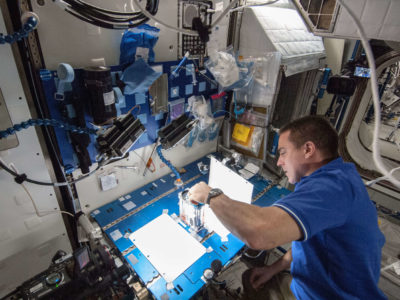If you walk through your school’s library and see sleep-deprived students burning chemistry and calculus into their brains, you might assume they’re future doctors. As it turns out, pre-med students aren’t the only ones slaving over equations. Engineers are lucky enough to take organic chemistry and calculus, while studying how technology works and develops. If you’ve ever wondered who designs airports and highways, checks the quality of medical tools or constructs software for computers, you can thank engineers.
What You’ll Be Doing

Advancing technology is the heart and soul of engineering. This doesn’t just mean the new iPhone 6 you waited hours in line to get; nearly every man-made device we rely on depends on the hard work of engineers. Engineering is actually so vast that you need to pick a concentration of study before you can continue on the road to your degree. Before you pick a specialization, you’ll face classes like calculus, physics, chemistry and differential equations. Once you get past the pre-requisites you get to the real deal upper level classes. Those courses all depend on the kind of engineer you aspire to be, whether that’s chemical, biomedical, civil and environmental, electrical, computer… the list goes on. If any of these concentrations pique your interest without making you feel like your brain will explode, you’re ready to hit the physics books.
The Good Stuff

1. “You start to learn a different type of thinking, such as critical thinking and advanced concepts. It makes you think outside the box so you become an innovator and a problem solver.” —Carlos Gordian, Product Quality Engineer at Medtronic, University of Florida, 2015
2. “You get a degree that can be applied to a wide range of jobs and you really learn how the world works. You get to work on new technology and problems that could really change the future. It’s a lot of hard work but a very rewarding job.” —Natalie Marini, Florida State University, 2015
3. “Electrical engineering covers a diverse set of areas like electrical power transmission, communications and robotics. There is a great deal of interesting research going on in those areas. Also, when something you have been working on for months or years finally comes to a successful completion, the feeling of success is unrivaled.” —Matt Wilson, Engineer for US Navy, Florida State University, 2014
The Bad Stuff

1. “It has a high dropout rate so it’s hard to convince people to stay. As a female, you have to be able to stick up for yourself and put yourself out there. It’s still a man’s world when it comes to a mechanical engineering workplace.” —Natalie Marini, Florida State University 2015
2. “It is a time-consuming major, and at higher levels like research and industry you can find yourself having spent months or years working on something that simply could not work. This can be due to poor planning, poor theory or just straight up running out of money.” —Matt Wilson, Florida State University 2014
3. “You definitely have to do a lot of extra research and studying on your own. If you jump into it without background knowledge, it’s hard to understand the concepts which are important for moving on. You can’t do as many extracurricular activities as your peers. I’m not saying you can’t do any at all, but you can’t do as many.” —Carlos Gordian, University of Florida 2015
Career Opportunities

After enduring the most grueling four years of your life, the most important question to answer is “what can I do with this?” Lucky for engineering majors, your job prospects are plentiful and rewarding.
1. Offshore Mechanics and Arctic Engineer
Since the need for oil is not going away anytime soon, the world needs engineers to construct and design the devices that facilitate drilling. Remember those oil spills that result in sad Dawn soap commercials? These engineers get the oil without getting the environment into major trouble. You can use your engineering knowledge to design tools that gather important resources while protecting Mother Earth.
2. Food Engineer
We have a massive population to feed and need more than just a few cows and chickens to sustain it. The process of getting meals from the farm to the plate is a long one. Food engineers design and manage the technology used to feed the public, including the machinery that pasteurizes milk and the mills that process rice. General Tso’s anyone?
3. Production Engineer
With factories spitting out products we use on a daily basis, there needs to be a production engineer running the show. A production engineer is a diverse character; not only can you design the actual products, but you can oversee the process to make sure it’s going your way. Your main goal is always efficiency, whether that pertains to time or cost.
4. Digital Circuit Design Engineer
We’ve all gone through the blind fury of using old and slow technology. Scoring a degree in electrical engineering gives you the skills to design, update and fix the guts of those devices. All the little circuits and wires in your laptop or cell phone were designed by digital circuit design engineers. Did you ever wonder who created the iPhone updates that give you blessed new emojis?
5. Biomedical Engineer
The world of medicine was a pretty dark place without technology; think surgery without anesthesia or scalpels. As a biomedical engineer, you can design new devices that improve the quality of life, like more efficient dialysis machines or a less gross alternative to a colostomy bag. As the medical world continues to innovate, someone needs to analyze and test the quality and effectiveness of the new products before they can be used during a medical emergency.



















